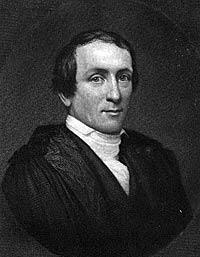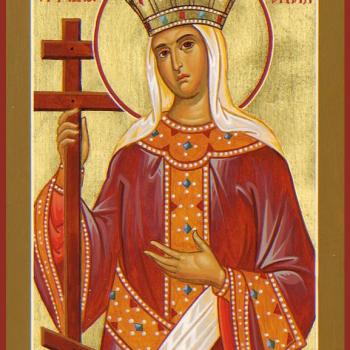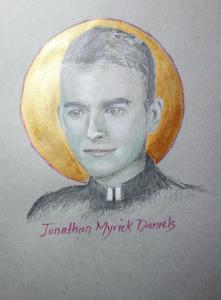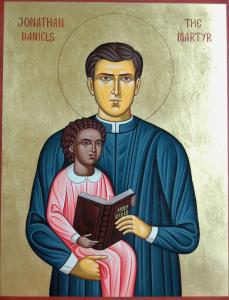There are lots of different reasons people are called saints. Some die witnesses for their faith. They’re called saints in lots of official calendars. Others live lives of extreme privation as examples. There are a number of them in those lists. Others just claim it for themselves and their co-religionists.
But, for me, there is a particular kind of person I think of as worthy of the title.
Early in the Nineteenth century, New England native James Chisholm became an Episcopal priest and in good time found himself rector of St John’s church in Portsmouth, Virginia. I wonder what he thought as a native New Englander in slave-holding Virginia. Whatever he thought, he clearly accepted the situation sufficiently to keep working there. The bill on that particular debt wouldn’t come due for while.
The rector was known for his shyness. And, let’s be frank. In some very real ways he was morally compromised. People knew slavery was wrong. Was evil. Most, however, chose to look the other way. The good rector was not an exception.
Then. In 1855 a yellow fever epidemic washed a tidal wave through the community. Some note this was a disease that came from Africa by way of the slave trade. Whatever, it was horrific. Many of the rich, of course, fled. Those who could, did. But, it included most of the doctors as well as many clergy.
Leaving a lot of suffering, and dying people, the majority desperately poor, slaves, some freed but all poor, and Irish workers. The lost and the left behind.
Fr Chisholm, already a widower, sent his young sons to relatives, out of harm’s way. But, he remained.
He stayed. He provided pastoral care to the sick and the dying. He took food to the hungry. And he assisted with treating the ill. He even helped dig graves.
What he did was stay. And, as he could, helped. He made no religious tests. It seems no color tests. He served the poorest of the poor.
Then as the epidemic was waning, he could the fever, lingered briefly, and died.
Apparently there’s a memoir. And in it there was some hasty revising, attempting to draw a religious moral.
And, maybe there was. But, I suggest it would be found less in the pointing to heavenly rewards. And, a lot more in the actual actions of a human being, going into it as we all do, compromised, in some real ways, broken.
And in the doing, found a wholeness.
Today the ever lovely Episcopal church marks this day out to remember him.
In their calendar of saints.
You want a saint? I suggest Fr James Chisholm gives us a pretty good example of what one looks like.













